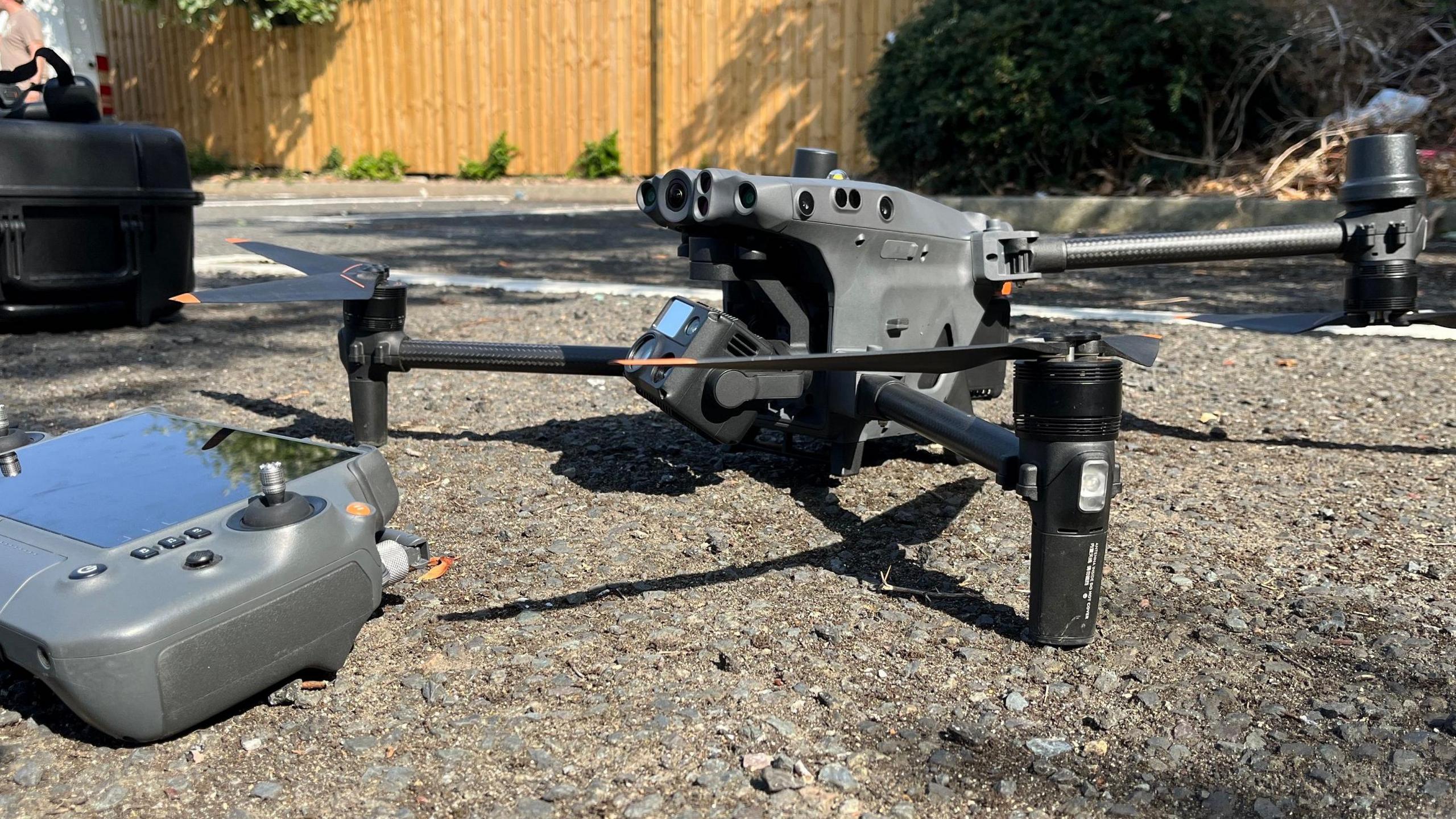'We feel watched after drone hovered near windows'
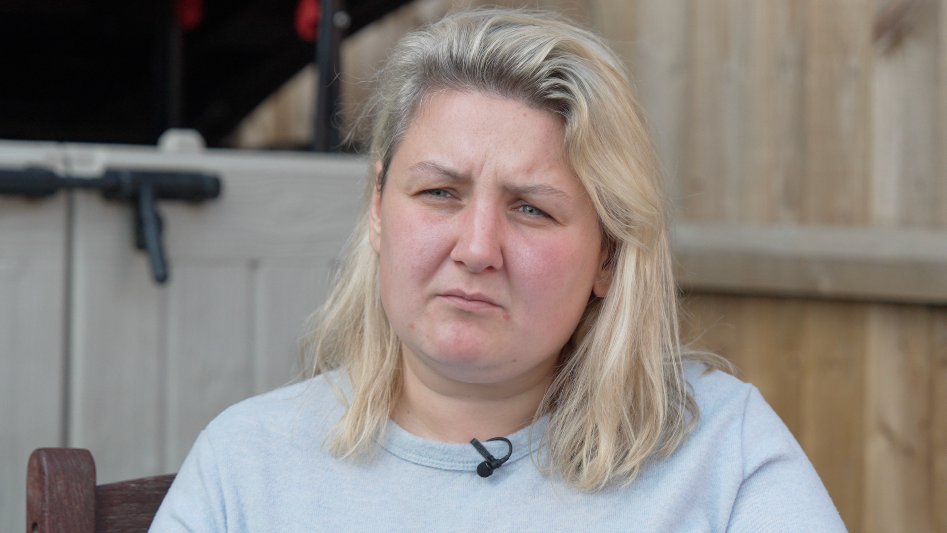
Claudia Rooks says she was left feeling paranoid that a drone was watching her family
- Published
A woman who says her family felt "watched" after a drone repeatedly hovered around their home wants tougher rules for operators.
Claudia Rooks, 32, from Pinchbeck in Lincolnshire, said a drone flew into their garden at night and lingered near her child's bedroom window, before returning the following day.
As it stands, there are no rules preventing drones weighing less than 250g (8.8oz) from flying near people or residential areas, but Ms Rooks felt it was an invasion of privacy.
A spokesperson from the UK Civil Aviation Authority (CAA) said: "If someone has concerns about unsafe flying or feels that their privacy is being invaded, they should contact police."
According to Ms Rooks, the drone first visited their property on 25 September in the evening.
"My partner first saw it and said there's a drone flying quite low outside," she said.
Then, Ms Rooks said the drone moved closer to their house.
"My daughter came running down the stairs and said someone's watching me."
Ms Rooks said the device had flown up to her 12-year-old daughter's bedroom window and quickly moved when she had noticed.
"I'm so angry. Don't fly over someone's garden, let alone looking up into a child's window," she added.
She said her daughter, who has autism, was left worried and paranoid after it had left and they had now installed reflective vinyl on her window.
She said: "You just don't know who has that drone. What are they doing with that footage?"
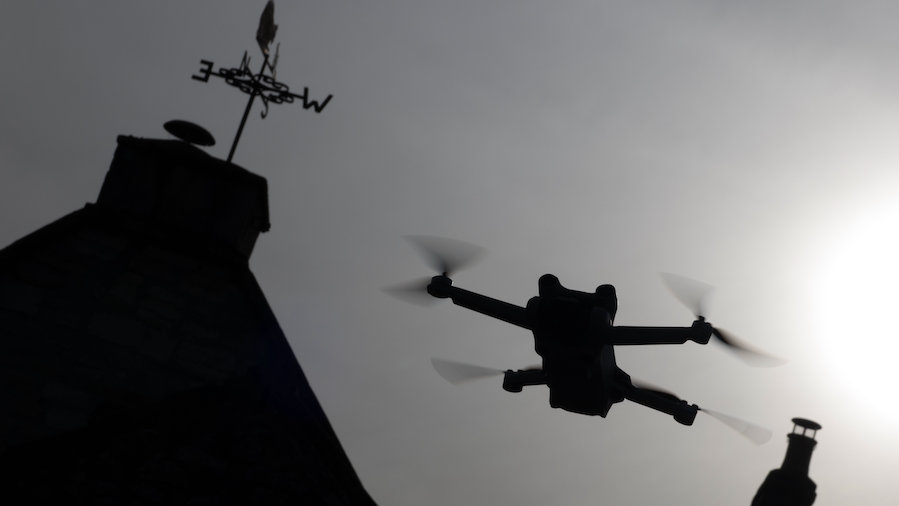
The UK Civil Aviation Authority said drone operators must fly responsibly (file picture)
Ms Rooks said the drone returned the next day and landed on a trampoline in their garden before quickly moving when she came out of her house.
"I am anxious about it coming back," she said. "If I hear a noise, I'm like, 'oh, is that it now?'"
Ms Rooks said she contacted police but chose not to formally report the incident.
She believes the rules should prevent any model from flying close to residential properties.
Drone rules
The CAA's rules depend on the device's size and capability.
If a device weighs 100g (3.5oz) or more, the operator must have a Flyer ID
If a device weighs 100g or more and has a camera, the operator must have an operator ID
If a device weighs less than 250g, it can fly over people and residential areas. If it weighs more, it would have to remain a restricted distance of at least 50m away
Operators, regardless of device type, must never fly over people who are crowded together
Any drone must stay well away from airports, airfields, spaceports and aircraft unless they have permission
All drones must not fly above 400ft (121m) from ground level
The CAA urges drone operators to respect people's privacy and to visit its website for a more detailed explanation of the rules.
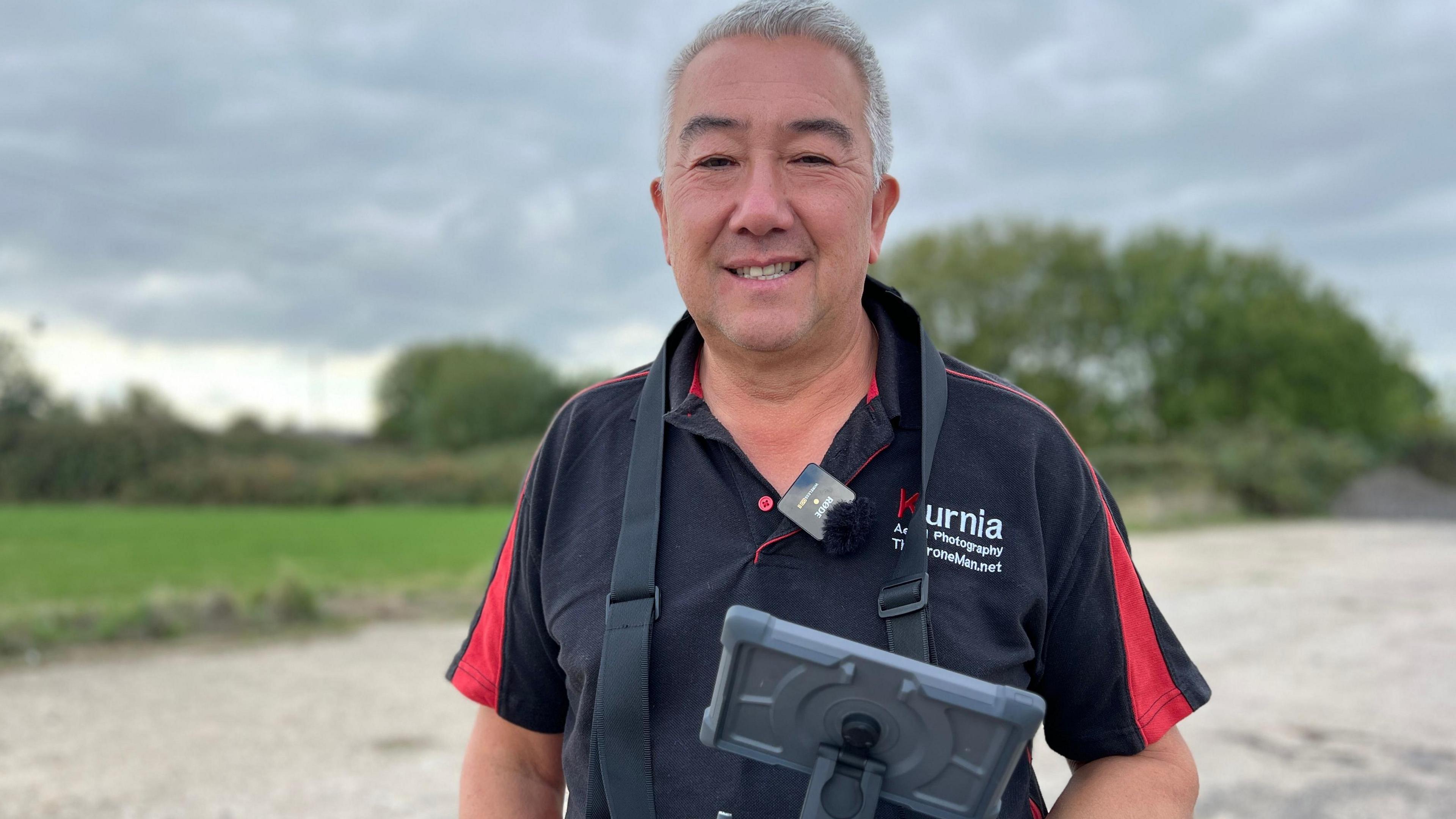
Drone operating professional Michael Kheng says people need to know the rules
Michael Kheng, 61, who has operated drones for aerial photography for 12 years, said he believed the rules attached to the devices weighing less than 250g were "too relaxed" and needed to be "tightened up".
Mr Kheng also said policy around drones had changed over the years.
"You only have to go back five or six years, and it was illegal to fly drones near to people," he said.
Mr Kheng said operators, no matter the device, should "always brush up on the rules".
The CAA added: "Anyone breaking the rules can face severe penalties including fines and even imprisonment."
Lincolnshire Police said if actions became repeated or persistent they could become a criminal matter.
A force spokesperson said: "Members of the public are entitled to a reasonable expectation of privacy.
"As with all offences, if a person feels that they are a victim of crime then they should report this."
Listen to highlights from Lincolnshire on BBC Sounds, watch the latest episode of Look North or tell us about a story you think we should be covering here, external.
Download the BBC News app from the App Store, external for iPhone and iPad or Google Play, external for Android devices
Related topics
- Published25 September
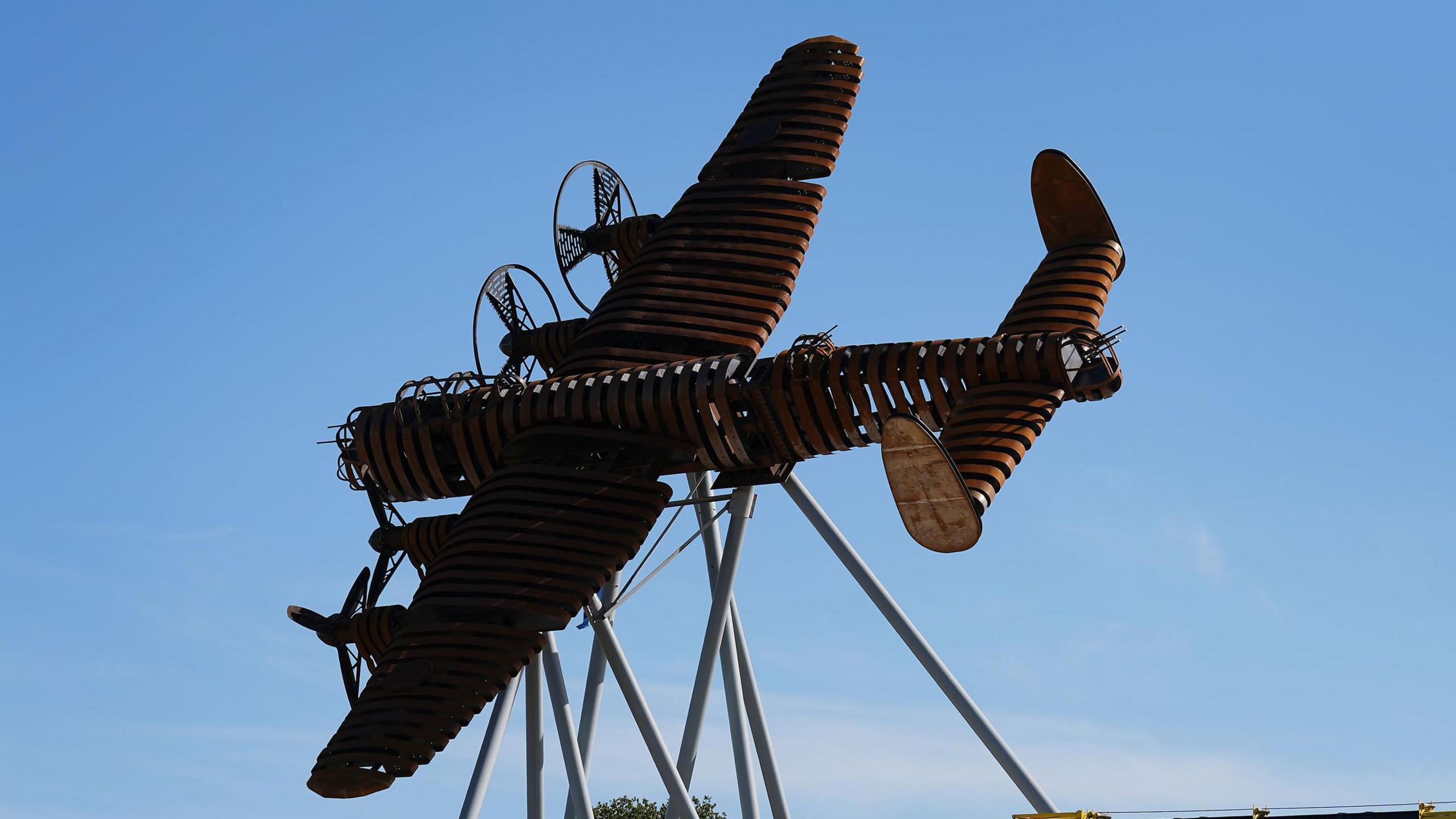
- Published27 August
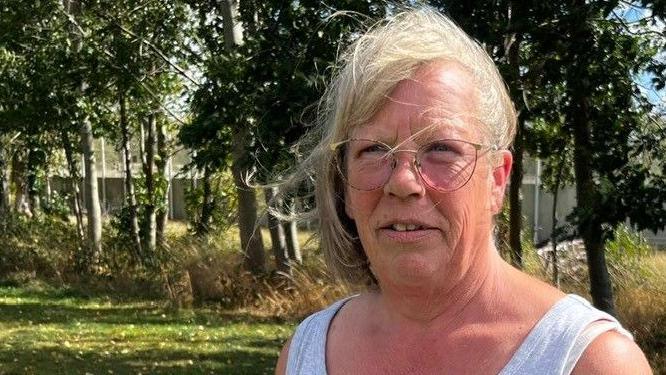
- Published19 August
